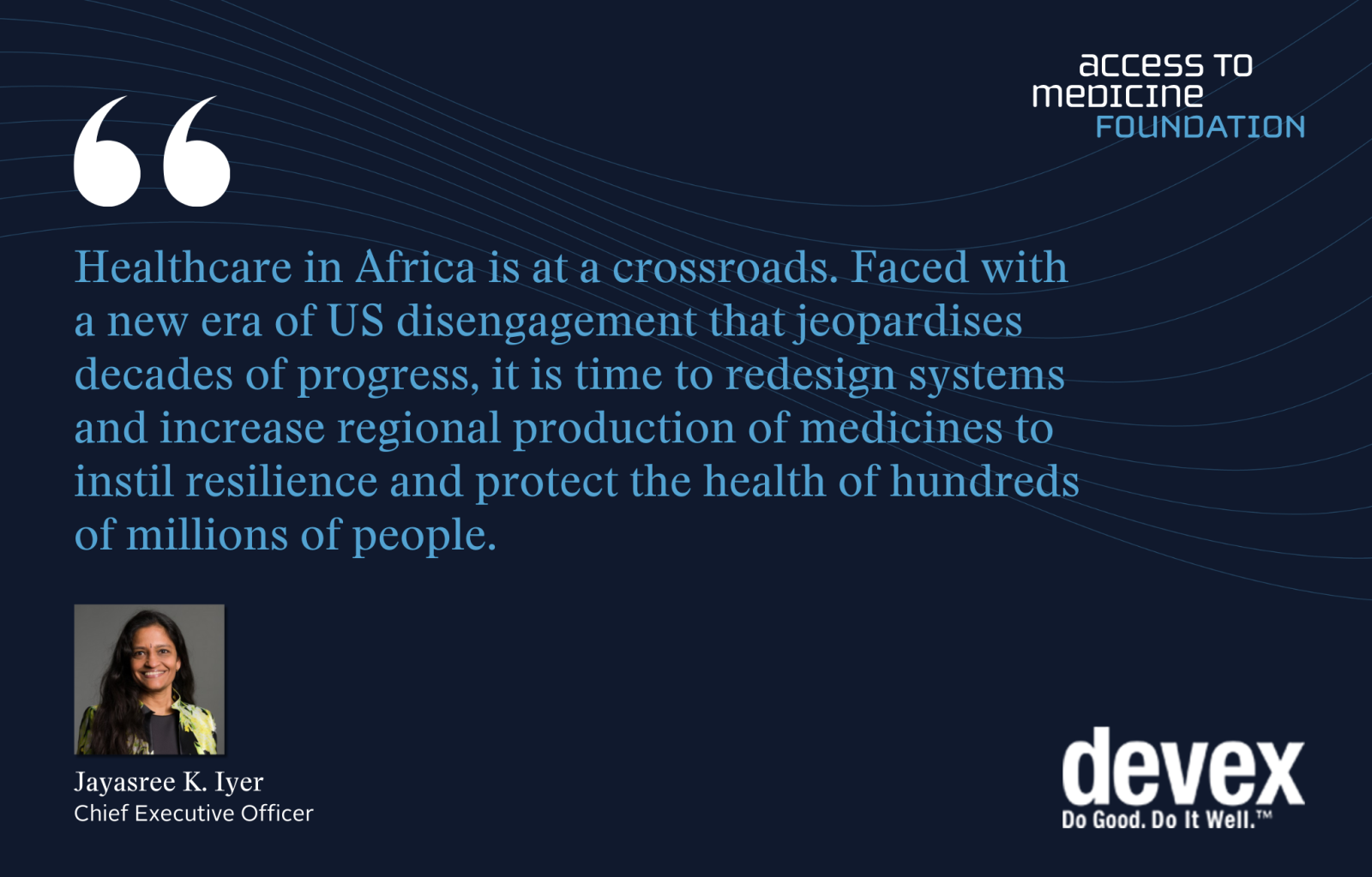Date
06 March 2025
Op-ed: Trump aid shock underscores need for more made-in-Africa medicine
Direct links

Amid geopolitical shifts and rising healthcare nationalism, including US President Donald Trump’s cuts to the foreign aid budget, Africa now faces critical shortages of essential medicines and vaccines. In her Dexex article, Jayasree K. Iyer writes that to sustain access, African countries must reduce reliance on external support.
As Iyer points out, with the majority (80%) of its medicines imported, the continent has only about 375 drugmakers, most of them in North Africa, while India and China have approximately 10,000 and 5,000 manufacturers, respectively. This highlights Africa’s insufficient local manufacturing capacity, leaving more than 1.5 billion people chronically susceptible to shortages of essential healthcare products.
Iyer discusses opportunities to bolster local manufacturing, and in turn, reduce reliance on foreign aid. Some African manufacturers already produce essential medicines and are even expanding into vaccines and complex medicines such as biologics. However, without government incentives, such as tax breaks and offtake agreements to help domestic manufacturers compete in the global market, this avenue will present significant challenges.
